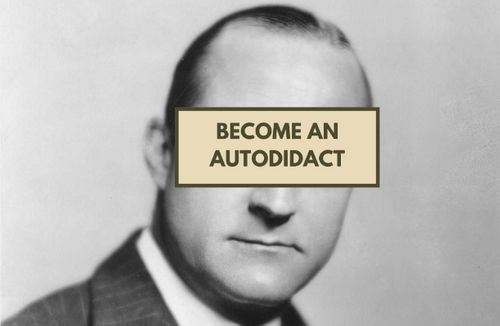A primer on how to think, read, and write from a self-taught genius
Nov 28, 2022 · 2 mins read
0
Share

Introduction. It's 1916. Henry Hazlitt has just published a book: Thinking As A Science. Why should anyone listen to him?? He is just 21 years old. He has dropped out of college. What could this young man know? As it turns out - he knew a lot.
Save
Share
Henry Hazlitt went on to write one of the highest selling economics books of all time: Economics In One Lesson. President Reagan called him an "intellectual leader." Hazlitt taught himself how to think, read, and write - and here are the lessons from his first book 👇
Save
Share
Everyone has a "pet little evil" that he attributes the rest of the world's problems to. For the feminist it's the "subjection of women," for the priest it's the "decline of religion." For Hazlitt it's the neglect of "independent, hard thinking."
Save
Share
It's important to think "with a purpose, with an end in view." Our cognitive horsepower is limited and most of us waste it in random associative thought. Car reminds us of travel reminds us of the last road-trip reminds us of a random motel. Thinking must be more goal-oriented.
Save
Share
"Concentration" is key. A piano key half pressed will produce no music, a fence half completed will keep out no predators, a thought half pursued will lead to no eureka moments. People leave a lot of insight on the table by not following ideas to their logical conclusions.
Save
Share
You're distracted because you're secretly convinced of the unimportance of what you're working on: "Much of our mind wandering is due to the fact that we are not fully convinced of the importance of the problem being attacked." Work you know is important is easy to focus on.
Save
Share
How inventions happen: "It has been frequently said that many of the world's greatest inventions were due to accident. In a sense this is true. But the accident was prepared for by previous hard thinking. It would never have occurred had not this thinking taken place."
Save
Share
A great metaphor for reading: "Learning to think by reading is like learning to draw by tracing." Ultimately great painters let go of the handrails of tracing and draw directly from nature. Great thinkers also let go of the guardrails of books, and attack problems directly.
Save
Share
Schopenhauer said that reading instead of thinking original thoughts is like "running away from Nature to look at a museum of dried plants." Reading should be used to stimulate new thinking. Hobbes famously said if "he had read as much as other men he would have known as little."
Save
Share
How to best convey your ideas: "Word it in as many different ways as possible. If a person had never been to a city and you wanted to give him an idea of it, you would show him photographs taken from different viewpoints. One photograph would correct and supplement the other."
Save
Share
0